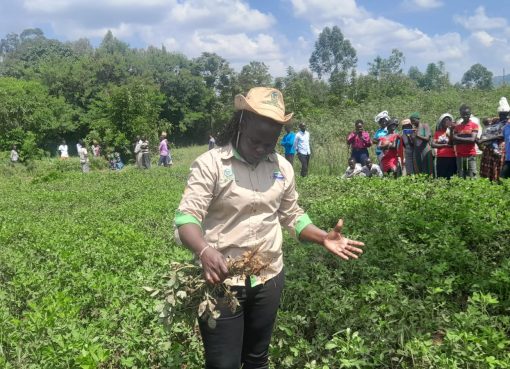The on-going drought and limited land for farming has been cited as the major cause of food production decline in the country.
According to the Agriculture Ministry, the food production sector was on a downward trend from 5.4 percent in 2013 to 1.6 percent in 2017.
A Director in the Ministry, Dr. Margaret Makelo said that low and declining soil fertility, high prices of fertilizer/pesticides and emergence of new pests were also to blame for the decline.
Makelo lamented that the country was currently being forced to import nearly all basic commodities to meet the rising demand, including wheat, maize, rice, beans, potatoes and sugar.
Saying that emerging challenges had led to high cost of food production, the Director regretted that the challenges were being compounded by high levels of poverty that has led to low purchasing power among most Kenyans.
Makelo said following the rural-urban migration where youths are now moving to towns in search of employment opportunities, farming has been left to older members of the society who are aged 50 years and above and whose productivity is also declining.
The Director who was speaking at KALRO center in Naivasha during a workshop on Sustainable Intensification of Maize-Legume Cropping Systems for Food Security in Eastern and Southern Africa (SIMLESA),noted that KALRO was partnering with other stakeholders where over 1.3m farmers were expected to benefit, a move that will help improve on food production.
The Director was happy that SIMLESA research had been able to demonstrate evidence based policy lessons and scaling approaches that could help reverse food and nutrition insecurities across the African continent in general.
The KARLO Director General, Dr. Eliud Kireger said that the attainment of food and nutrition security in the country remained a challenge due to weather changes, which had resulted in droughts and flooding, adding that the SIMLESA research project which is being sponsored by Australian Center for International Agricultural Research will go a long way in improving food production in the country.
By Esther Mwangi/Jescah Okinda


